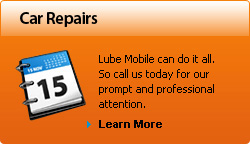Treating Your Engine Better When You Drive
Are you actively reducing the lifespan of your car? Most of us are well aware that performing routine maintenance like an oil change improves a vehicle?s overall health, but did you know that your driving habits also have a direct effect on the lifespan of your vehicle? The following are just some of the things to keep in mind every time you get behind the wheel of your car if you want to preserve the life of your engine.
Warm up the engine
Driving off too quickly when the car is still cold is one of the worst things you can do for the engine. The combustion process doesn?t become effective until the engine reaches its operating temperature, and oil also needs time to warm up and flow properly. Ideally, let the engine run for three to 10 seconds before you take off, and even then you should accelerate slowly. In cooler climates, give it even more time than this.
Don?t go on too many short journeys
Do you only use your car for short trips to the shop? If so, you could be slowly damaging your engine. The problem with a short journey is similar to driving off too quickly, in that the engine doesn?t have time to reach its operating temperature. Until the engine oil is viscous enough to properly lubricate the moving components of the engine, you are effectively damaging your engine.
Don?t rev the engine too high
This isn?t just for those who like to race or make noise with their vehicle for whatever reason; it?s also for those of you that drive a manual vehicle. The red line indicates the maximum permissible engine speed, and going above this means you are putting an enormous amount of stress on the engine. Keep this in mind when you are driving manually, and always know when it?s appropriate to switch to the next gear.
Stop riding the clutch
Just like you shouldn?t keep your left foot on the brake while driving, the same goes for the clutch for a manual transmission. Keeping your foot even slightly touching the clutch will prevent it from fully engaging, leading to premature wear. The same goes for keeping the clutch depressed in traffic or when stopped at traffic lights. When the clutch is depressed, it is being forced against the release bearing, causing it to wear out quickly.
Don?t change to park or reverse while moving
For those with automatic vehicles, you still need to be aware when you are changing your gears from park to drive or reverse. Many people get into the habit of shifting gears while the car is moving, such as when you put it in drive while still coasting backwards, which is an effective way of adding months of wear to your transmission in a matter of seconds. Inside the transmission is a complex set of gears, which are forced to work as brakes when you shift without stopping first. As a result, the drive shaft becomes damaged and your transmission becomes worn.
There are plenty of ways to damage your engine while driving, and these are just a few of the most common ones that people generally aren?t aware of. The point is that you should always be aware that your car is a complex piece of machinery and that your actions behind the wheel are having a direct impact on how well it operates.




